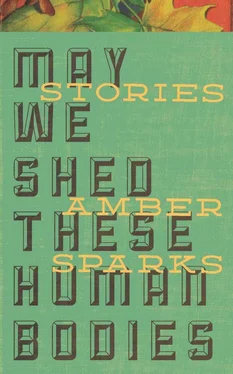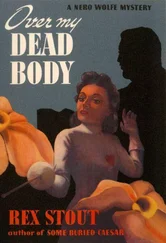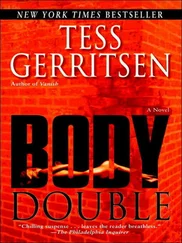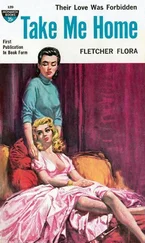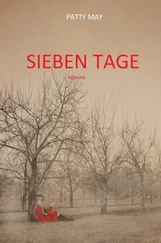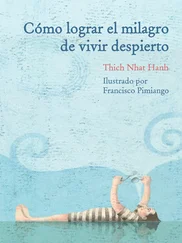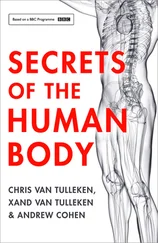Amber Sparks - May We Shed These Human Bodies
Здесь есть возможность читать онлайн «Amber Sparks - May We Shed These Human Bodies» весь текст электронной книги совершенно бесплатно (целиком полную версию без сокращений). В некоторых случаях можно слушать аудио, скачать через торрент в формате fb2 и присутствует краткое содержание. Год выпуска: 2012, Издательство: Curbside Splendor Publishing Inc., Жанр: Современная проза, на английском языке. Описание произведения, (предисловие) а так же отзывы посетителей доступны на портале библиотеки ЛибКат.
- Название:May We Shed These Human Bodies
- Автор:
- Издательство:Curbside Splendor Publishing Inc.
- Жанр:
- Год:2012
- ISBN:нет данных
- Рейтинг книги:5 / 5. Голосов: 1
-
Избранное:Добавить в избранное
- Отзывы:
-
Ваша оценка:
- 100
- 1
- 2
- 3
- 4
- 5
May We Shed These Human Bodies: краткое содержание, описание и аннотация
Предлагаем к чтению аннотацию, описание, краткое содержание или предисловие (зависит от того, что написал сам автор книги «May We Shed These Human Bodies»). Если вы не нашли необходимую информацию о книге — напишите в комментариях, мы постараемся отыскать её.
May We Shed These Human Bodies peers through vast spaces and skies with the world's most powerful telescope to find humanity: wild and bright and hard as diamonds.
May We Shed These Human Bodies — читать онлайн бесплатно полную книгу (весь текст) целиком
Ниже представлен текст книги, разбитый по страницам. Система сохранения места последней прочитанной страницы, позволяет с удобством читать онлайн бесплатно книгу «May We Shed These Human Bodies», без необходимости каждый раз заново искать на чём Вы остановились. Поставьте закладку, и сможете в любой момент перейти на страницу, на которой закончили чтение.
Интервал:
Закладка:
But no, someone hasn’t, and they hear a flat bang, and the door swings open, and suddenly a woman is screaming in the laundry room next door, high and horrible and help me, help me, she’s actually saying that, shrieking it, and they hear a large something slamming against the dryers over and over. The noise is shocking, gruesome. Meat hitting metal. The yeller’s voice is muffled, he’s all messed up, he’s mumbling now but the rage is spilling over worse than ever. I’ll kill you motherfucker, I’ll kill you, he keeps saying, and the screaming and slamming won’t stop.
Until it does, suddenly. And everything goes quieter than space.
They call the cops in a whisper and sit huddled in front of the door in the dark, shushing each other. She wishes they had a gun in the apartment; she could have run to the laundry room and shot him, maybe not in the head but in the chest or leg, somewhere meaty. Somewhere substantial. She’s heard that if you’re high on PCP or whatever you don’t feel pain and you don’t die right away, that your momentum keeps you moving forward, all the bone and blood and muscle in you hanging together until the adrenaline rush finally goes for good.
Oh my god, she says. Oh my god, it’s just like Kitty Genovese. How could we not have saved her? She puts her palms flat against the floor, presses hard to feel the wood fibers digging into her skin. I think that woman’s dead, she says. Don’t you think she’s dead?
Shhhhhh, he says, we don’t know. We don’t know anything. His chin rests on his knees; his arms are wrapped tight around his legs. They shiver in their underwear. They hear sirens: close, closer, here they are now in the back parking lot. Lights flash outside, soft and red through the blinds.
She starts to cry. How will we live like people now, she says. How will we. It’s not a question, even though it sounds like one.
If You Don't Believe, They Go Away
The little girl is strange, and special, and full of stories; the man across the hall is tall, and old, and lonely. He has no one to talk to but the little girl. Every day the man comes home from work and jingles his keys in front of his door, and like a cat the little girl bursts out of the apartment across the hall and flings herself at him. And she follows him into his apartment and he makes her cocoa, and she sits at his tiny kitchen table and takes little sips, wiping the foam from her lips in between. And she tells him stories.
Like the one about how in France there was a monster with a giant claw for a hand, and he was five thousand feet tall, and he could have ripped down the Eiffel Tower and killed all the people with his poisonous breath if he wanted to. But he didn't want to. He was a kind and gentle monster, and he couldn't help that he had a claw for a hand and poisonous breath, so he just lived mostly in the sea and ate fish. And since he could have killed them all but didn't, the people worshipped him (from a safe distance) and he was happy.
The little girl is my sister, and we are waiting for her to come home so we can eat dinner. She has always been full of stories. Even when she was just learning to talk, she told us her peas were really bullets, and if she ate them her mouth would turn into a silver gun and she would shoot us all, bam, bam, bam. She told Miss Shirley at KinderCare that all the dogs in the world had a terrible disease, and soon they would turn purple and start shrinking, smaller and smaller, until they were tiny enough that all the cats would swallow them like mice. Miss Shirley called my mother and said, Your daughter has emotional problems.
No, no, my mother told Miss Shirley, my daughter just has stories. Like stories was a condition. Which I guess maybe it is.
So my mother smiles when my sister tells us tales about the man across the hall. She tells us how the man sometimes turns into a small white dog, or sometimes into a snake. And that one time he turned her into a snake, too, and showed her how to slither under the doors and furniture without any feet or hands. She says that he has a magical garden, right under the windowsill, with hundreds of different kinds of exotic flowers. But if you don't believe, she says, they go away.
My sister puts on her yellow rain boots before school every morning, even when the sun is shining. She calls them her Good Boots. They are magical, she says, and when she walks they glow like a thousand fireflies and keep away all enemies and evil things. The kids at school make fun of her. They think my family must be poor, that she doesn't have any other shoes to wear. I tell them my sister is crazy.
Are you visiting that man across the hall again today? my mother asks. My sister rolls her eyes and says yes, of course, she visits the man every day. Duh. She tells us how the man has said that soon, he will teach her how to turn into a robin, and they will fly south for the winter and return in the spring. She will be sad to miss the winter. She likes stomping in the snow in the Good Boots, she says, but instead she will make friends with colorful birds and fall asleep listening to jungle noises and tropical rain.
My dad pours cream into his coffee and shakes his head. I don't know where you get your imagination, he says, but it certainly isn't from the rest of us.
It's true. We have no stories to tell, my mother and dad and me. We are flat, two-dimensional; stories do not burst from our heads like roses. We have no real character arc. We go from home to school to soccer practice to work and back and we never change. And we don't believe in magic glowing boots, or little girls who turn into birds and snakes and silver guns.
One day we wait for my sister to come home from dinner, just like we do every night. Only this time we wait, and wait, and wait, until finally my dad gets angry and goes across the hall and bangs on the door. There is no answer. When the police finally arrive and force open the door, my mother grabs at my father's shirt in panic. There is nothing at all in the apartment: no tall old man, no little girl, no furniture, no rugs or plates or knives or cups of cocoa. There is nothing at all in the dim, dingy place except for a pair of yellow rain boots, neatly placed under the living room windowsill.
My little sister is full of stories, but she has packed them up and flown. We eat our dinners in silence and at night our dreams are blank and empty. We watch the snows fall and melt and fall again, and we dare not make up stories of our own. None of us will admit it, but we are a restless audience; we are waiting and watching for the first signs of spring.
Feral Children: a Collective History
They are raised by wolves or they are raised by apes or they are raised by gazelle or donkeys or dolphins, by dogs or goats or cats or birds or bears or even bees. They suckle at teats when tiny, but later they chew grass, lettuce, kelp, slurp pollen and search for the softest, sweetest apples littering the ground., Or else learn to tear open carcasses with tiny baby teeth, to catch small fish with pudgy hands, to stalk prey on silent wobbly baby legs, baby noses sniffing out the tangy copper trail of blood.
Before they can learn wild ways, there must be a parting from the human parents. The children are cast out of the home, the village, the castle, shack, orphanage, hospital, shtetl. Or they are stolen from the crib. They are abandoned, unwanted, left in the woods to die. They run away. They are given to the pack, the animal mothers, to the Earth, as a ritual sacrifice or in accordance with Fate or to hide the child from murderous uncle, stepmother, father, or king.
They inhabit the woods of Croatia, Romania, Denmark, Austria, Canada, Siberia, the Ukraine, Poland, Argentina, Germany. Or the wilds of Brazil, Uganda, South Africa, Sierra Leone, Kenya, Indonesia, Burundi, Mauritania. Or the waters of the Aegean Sea, the Black Sea, the Indian Ocean, the coast of the Pacific Northwest. Or the property-lining bushes of suburban tract housing, vast garbage dumps, hollow logs, even wide, flat rocks and the soft soil after a hard rain.
Читать дальшеИнтервал:
Закладка:
Похожие книги на «May We Shed These Human Bodies»
Представляем Вашему вниманию похожие книги на «May We Shed These Human Bodies» списком для выбора. Мы отобрали схожую по названию и смыслу литературу в надежде предоставить читателям больше вариантов отыскать новые, интересные, ещё непрочитанные произведения.
Обсуждение, отзывы о книге «May We Shed These Human Bodies» и просто собственные мнения читателей. Оставьте ваши комментарии, напишите, что Вы думаете о произведении, его смысле или главных героях. Укажите что конкретно понравилось, а что нет, и почему Вы так считаете.
